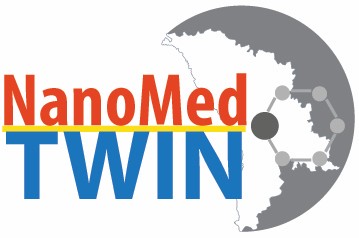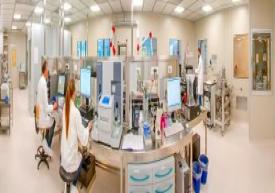The Nanobiotechnology Laboratory features state-of-the-art equipped facilities designed to foster interdisciplinary studies. A special emphasis lies on characterisation of nanomaterials, nanotechnology-enabled health products, microplastics, advanced materials and their interactions with biological systems, as well as on the detection, identification and characterisation of nanomaterials and microplastics in complex matrices.
The call for access to Nanobiotechnology Laboratory closes on March 16, 2020.
The Nanobiotechnology Laboratory offers the following Training and Capacity Building topics:
-
Hands-on training on nanomaterials sizing using state of the art instrumentations such as Dynamic light scattering, Disk centrifuge sedimentation, Asymmetric Field Flow Fractionation with different detectors, Analytical Ultra-Centrifugation, Tunable Resistive Pulse Sensing and ICP-MS including single particle detection.
-
Introduction into commonly used in vitro assays for studying nanomaterial-cell interactions and highlighting pitfalls occurring during assay development due to the specific nature of nanomaterial (in vitro dosimetry, interaction of nanomaterial with cell reagents).
-
Hands-on training on biomolecular interaction studies using surface plasmon resonance and quartz microbalance techniques.
-
Hands-on Training on Raman spectroscopy, ellipsometry, electron microscopy and an introduction to surface chemistry analysis using XPS and/or ToF-SIMS.
The duration of the training is 5 days. The training will be performed using model samples chosen by the JRC. A half-day session on Nanomaterials in EU regulation will be organised the first day of the training week.
For more information on conditions of access, eligibility and selection criteria, as well as how to apply, please visit the EU Science Hub official website.

